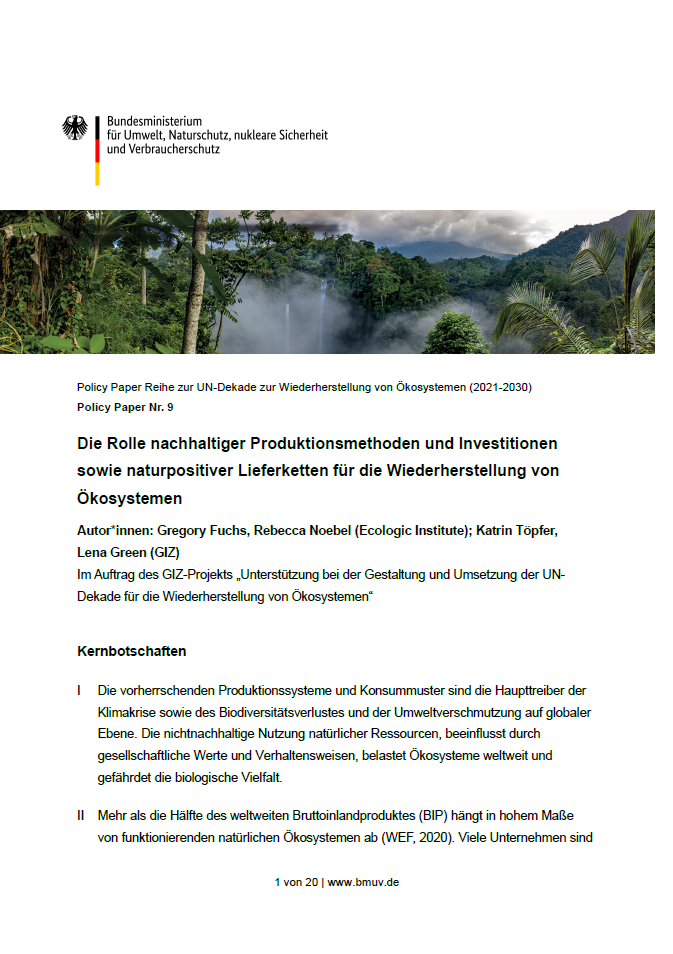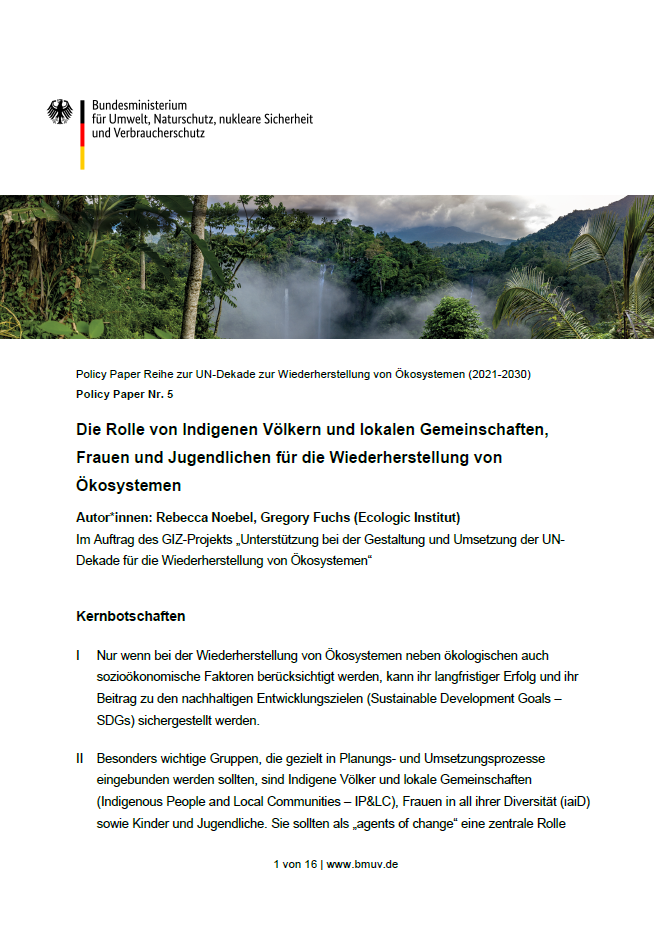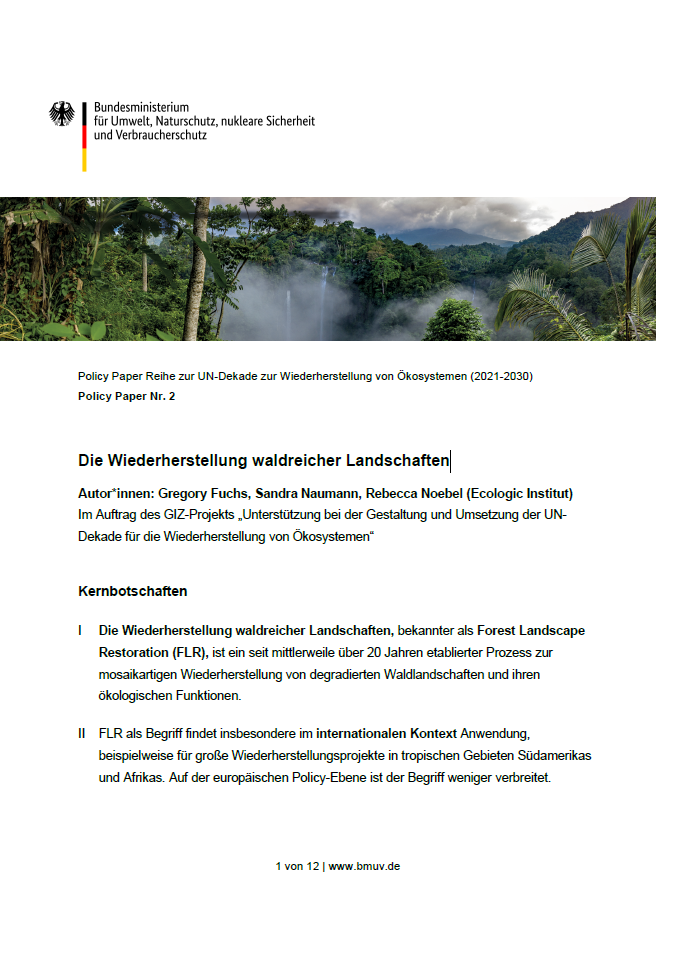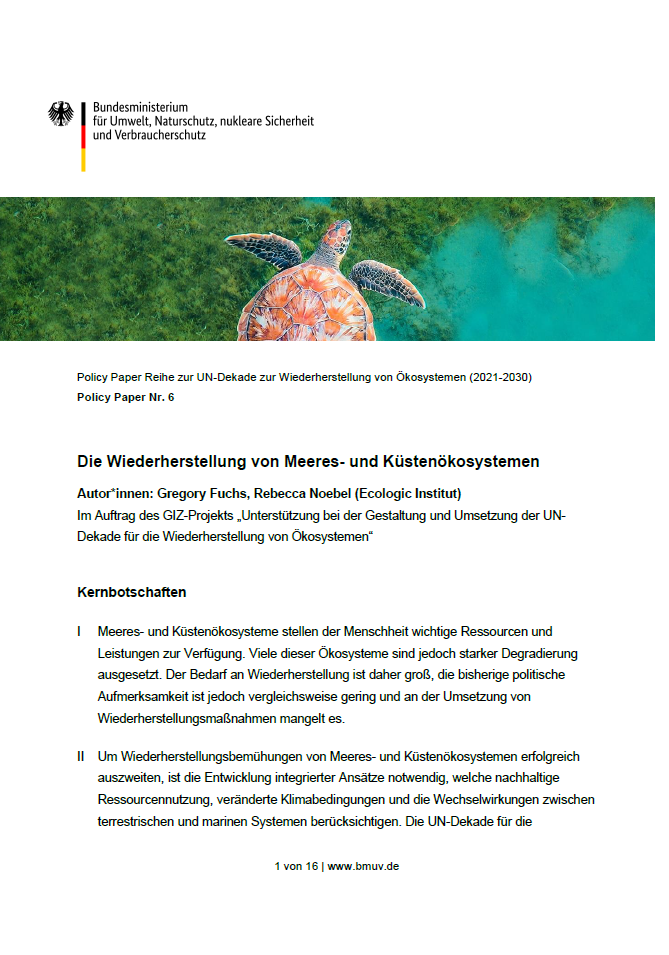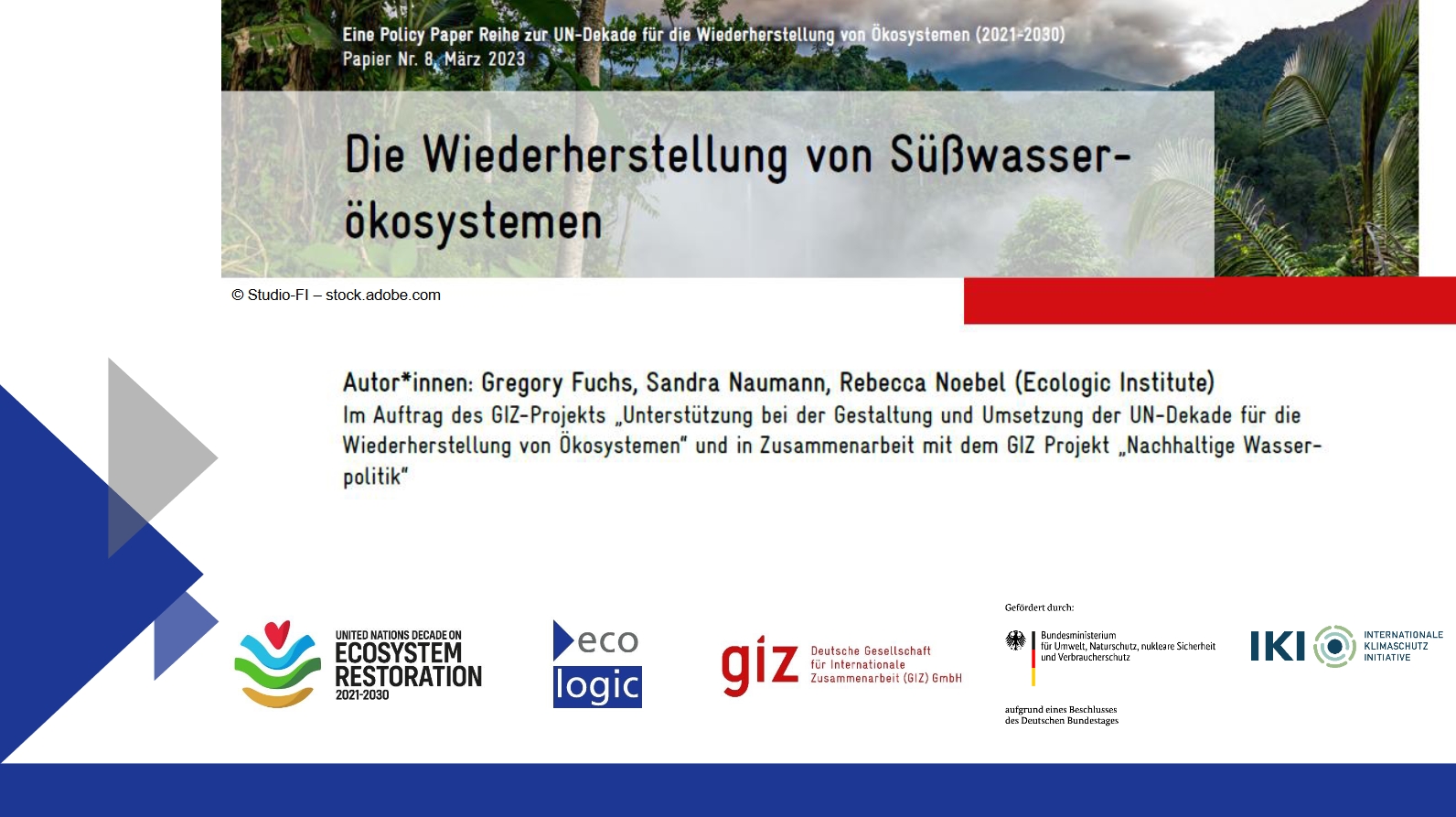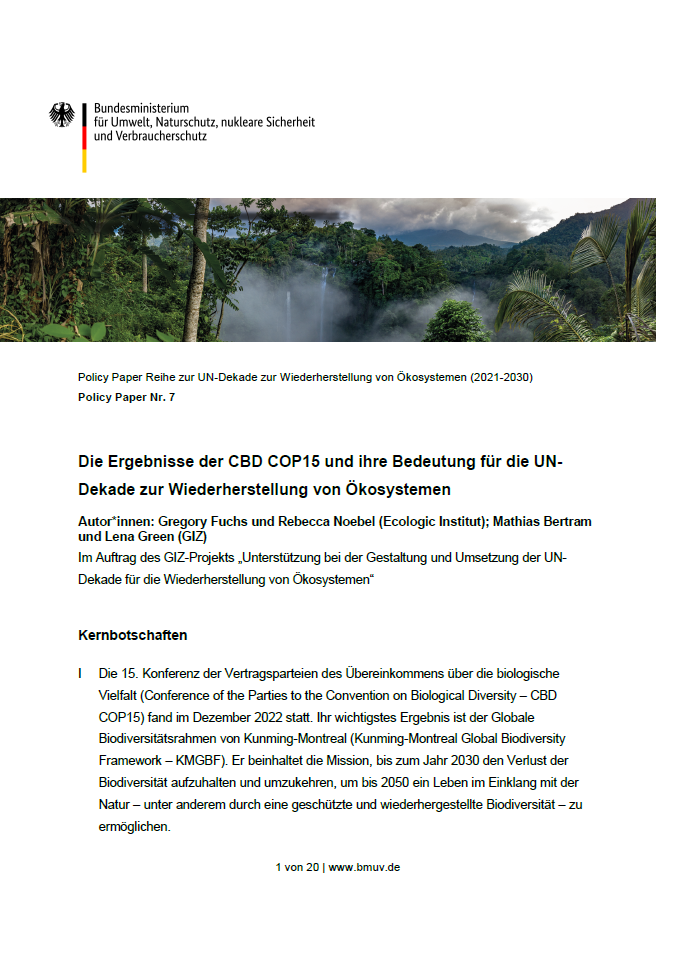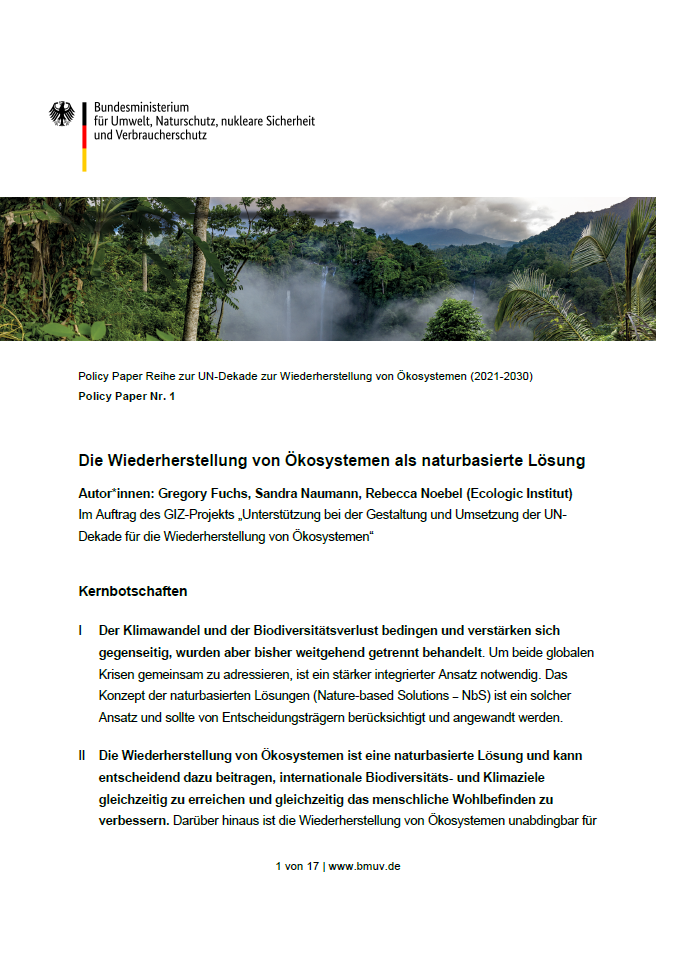Die Wiederherstellung von Süßwasserökosystemen
- Publication
- Citation
Fuchs, Gregory et al. 2023: Die Wiederherstellung von Süßwasserökosystemen. Papier Nr. 8 der Policy Paper Reihe zur UN-Dekade für die Wiederherstellung von Ökosystemen (2021-2030). Federal Ministry for the Environment, Nature Conservation, Nuclear Safety and Consumer Protection, Berlin.
This policy paper addresses the restoration of freshwater ecosystems. It delves into a policy milieu where the UN Decades of Ecosystem Restoration and the Water Decade emerge as pivotal, particularly bolstering SDGs 6 (Clean Water and Sanitation) and 14 (Life Below Water). Despite these initiatives, progress toward SDG 6 remains markedly insufficient, with freshwater ecosystems continuing to be underrepresented within the global biodiversity framework. The EU Water Framework Directive and the Ramsar Convention, while significant, have achieved only partial success to date. The EU Biodiversity Strategy for 2030 and the forthcoming Nature Restoration Law (NRL) represent ambitious endeavors aimed at fostering ecosystem restoration. A notable milestone within the UN Water Decade was the convening of the second UN Water Conference in March 2023.
The paper was composed in 2023 and subsequently updated within the same year to reflect the latest scientific and policy advancements. It offers policy recommendations that advocate for the integration of specific measures into Nationally Determined Contributions (NDCs) and National Biodiversity Strategies and Action Plans (NBSAPs), alongside the proposal for a binding international water treaty and the appointment of a UN special representative for water. It underscores the necessity to elucidate and enhance synergies between freshwater ecosystem preservation and flood risk management, promoting inter-sectoral collaboration. The engagement of stakeholders alongside the collation and dissemination of best practices is deemed crucial for the successful restoration of ecosystems. In this context, the Ramsar Convention is positioned as a central mechanism. Furthermore, securing adequate funding is underscored as a critical requirement for the restoration of freshwater ecosystems.
Freshwater ecosystems, including rivers, lakes, and wetlands, provide essential ecosystem services such as clean drinking water, food, raw materials, recreation, and energy generation. The degradation of these ecosystems due to human activities such as pollution, water extraction, and habitat destruction is alarming, while climate change further exacerbates these threats. Intact and successfully restored freshwater ecosystems offer cost-effective, nature-based solutions that improve water quality, stabilize the landscape's water balance, provide habitat for numerous species, and contribute to climate change adaptation (e.g., against extreme weather events). In addition, particularly, the restoration of peatlands and the protection of intact wetlands significantly contribute to reducing greenhouse gas emissions. Therefore, it is urgently necessary to intensify efforts to restore freshwater ecosystems.
